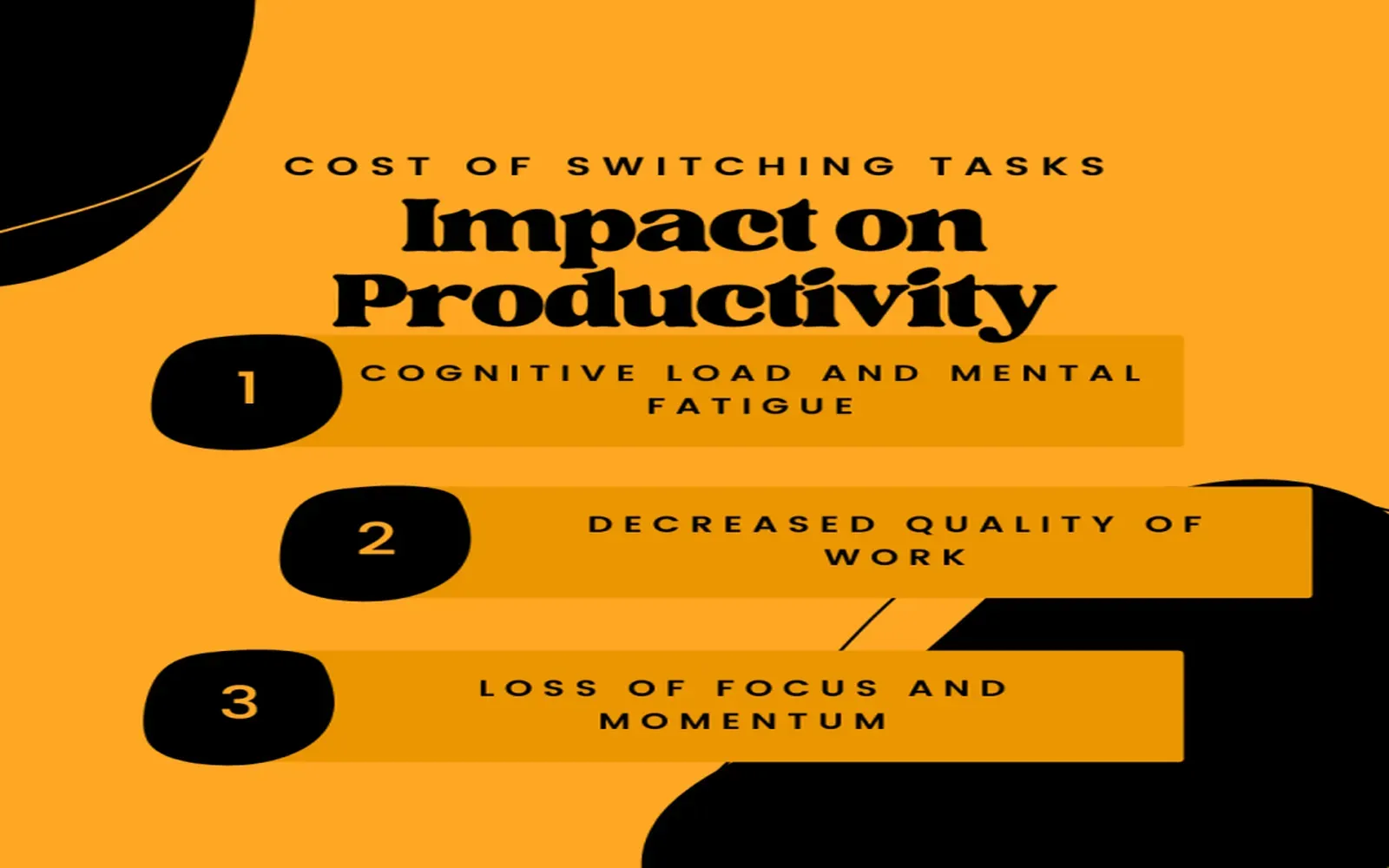The Impact of Context Switching on Productivity
In a fast-paced work environment, the ''cost of switching lanes'' can be significant. Research shows that multitasking can lead to a decrease in productivity, as employees struggle to refocus their attention after changing tasks. This phenomenon is often referred to as ''context switching'', and it can drain time and mental energy. Understanding how to manage this can lead to improved efficiency and better outcomes in your work.
What is Batching?
Batching is a productivity technique that involves grouping similar tasks together to minimize the distractions caused by context switching. By focusing on one type of activity for a set period, individuals can harness their cognitive resources more effectively. This method helps streamline work processes, reduces the time spent on each task, and ultimately boosts overall productivity.
Benefits of Batching
Implementing batching into your daily routine can have several benefits:
- Increased Focus: By concentrating on similar tasks, you reduce the cognitive load and allow your mind to engage more deeply with the work at hand.
- Time Management: Batching allows for better scheduling, as you can allocate specific times for groups of tasks, reducing the need to constantly adjust your focus.
- Enhanced Efficiency: Repeatedly switching between tasks can lead to a loss of momentum. Batching helps maintain a steady workflow, completing tasks more quickly.
- Reduced Stress: Knowing that you have a designated time for specific tasks can alleviate anxiety about unfinished work.
How to Implement Batching in Your Workflow
To effectively use batching in your daily routine, consider the following steps:
- Identify Similar Tasks: Start by listing out your daily tasks and grouping them into categories. For example, you might have emails, meetings, and project work.
- Set Specific Time Blocks: Allocate specific time slots for each group of tasks. This could be a couple of hours in the morning for emails and a few hours in the afternoon for project work.
- Limit Distractions: Create an environment conducive to focus by minimizing interruptions. This might mean turning off notifications or finding a quiet space to work.
- Review and Adjust: At the end of each week, review what worked and what didn’t. Adjust your batching approach to better suit your workflow.
Challenges of Batching
While batching can significantly improve productivity, it’s not without its challenges:
- Initial Resistance: Changing long-established work habits can be difficult. It may take time to adjust to a new system.
- Rigid Scheduling: Some tasks may require immediate attention, which can disrupt your batching schedule.
- Overloading: If you group too many tasks together, it can become overwhelming, negating the benefits of batching.
Visualizing the Cost of Context Switching
To better understand the impact of context switching versus batching, consider the chart below:
| Task Type | Context Switching Cost | Batching Time Savings |
|---|---|---|
| Emails | 15 mins | 5 mins |
| Meetings | 20 mins | 10 mins |
| Project Work | 25 mins | 15 mins |
This chart illustrates how the ''cost of switching lanes'' can hinder productivity significantly while batching tasks can lead to substantial time savings. For instance, if you spend 25 minutes switching tasks during project work, batching can save you 15 minutes, allowing you to focus more on what really matters.
Conclusion
The ''cost of switching lanes'' in the workplace can be detrimental to productivity. By adopting batching as a strategic approach, you can minimize context switching and enhance your focus, efficiency, and overall performance. Remember to assess your workflow regularly and adjust your batching practices to maximize your productivity gains. In today's busy world, every minute counts, and effective task management through batching can make a significant difference.
With tools and techniques like batching, you can navigate your tasks more effectively, ultimately leading to higher productivity and better results in your work environment. Embrace the change and watch your efficiency soar!





